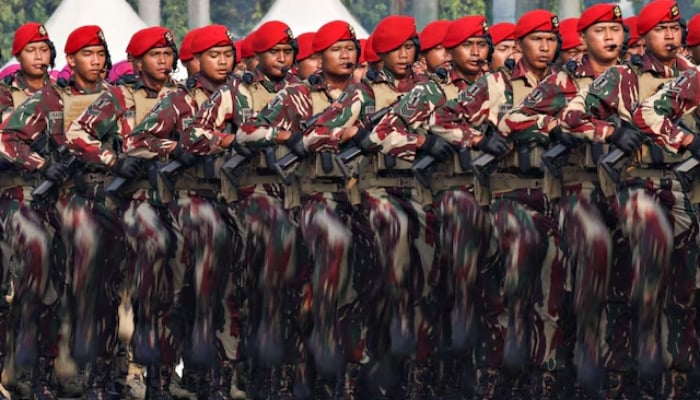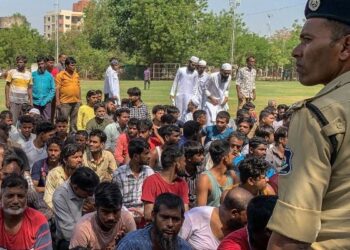Select Language:
- Lawmakers voice their agreement as Puan strikes the gavel.
- Previously, military personnel could hold positions in 10 government agencies.
- The updated legislation now allows military officers to serve in 14 institutions.
JAKARTA: On Thursday, Indonesia’s parliament made amendments to a law, permitting military members to take on additional roles in government, despite concerns that it could further intertwine military and civilian jurisdiction.
This revision to the armed forces law, largely advocated by President Prabowo Subianto’s coalition, seeks to extend the military’s function beyond national defense in a nation long shaped by a historically influential military presence.
Critics fear this shift could signal a regression to the Suharto era, when the late dictator, whom ex-general Prabowo once served, utilized military personnel to suppress dissent.
“Now is the time to ask the factions to support this amendment… Are we in agreement to formalize it into law?” House Speaker Puan Maharani prompted during the plenary session.
Following her call, lawmakers responded with a resounding “agree,” and Puan struck the gavel, indicating that the amendment had been approved.
The military’s chief, General Agus Subiyanto, had informed parliament last week that the existing military law, enacted in 2004, had become outdated.
Under the previous law, military officers were restricted to roles in 10 government agencies, including the defense ministry, and were required to resign or retire from military duties to accept civilian positions in other departments.
The new legislation now allows military personnel to be part of 14 state institutions, which include the attorney general’s office and the disaster management agency.
Human rights organizations have expressed concerns that this revision could lead to a greater influx of active-duty military members into civilian roles, diminishing legal checks against abusive officials.
“It appears that President Prabowo is intent on reinstating the Indonesian military’s influence in civilian matters, a period characterized by rampant abuses and a lack of accountability,” commented Andreas Harsono, senior Indonesia researcher at Human Rights Watch.
“The government’s haste to pass these amendments undermines its stated commitment to human rights and accountability,” he added.






